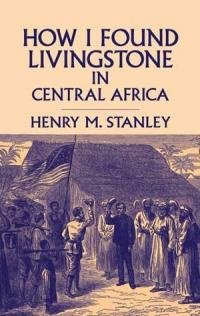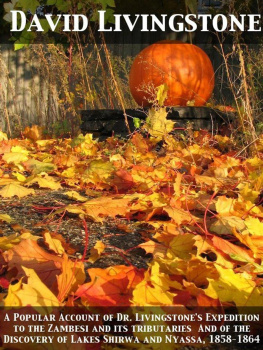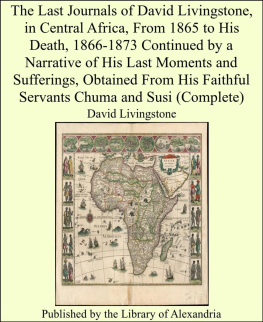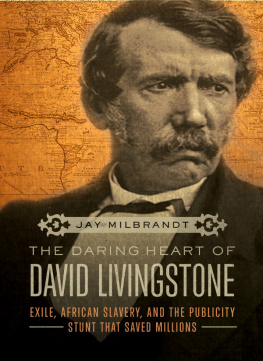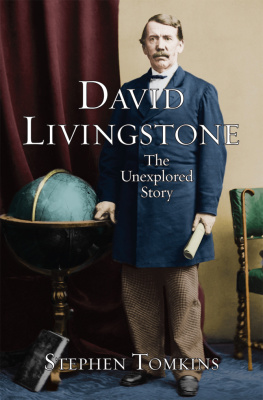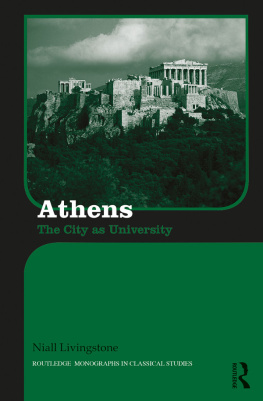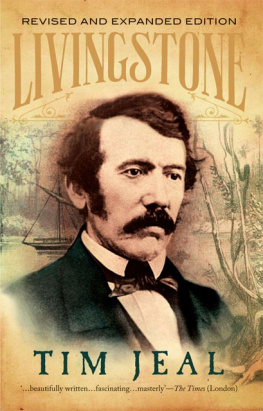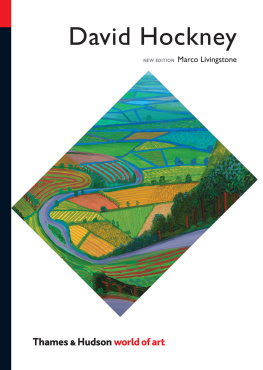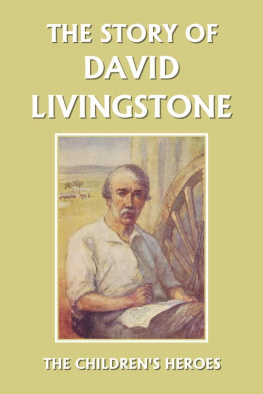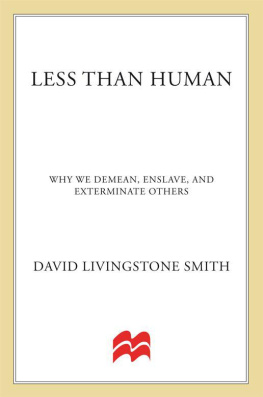PREFACE
On March 19th, 1913, a hundred years will have passed since David Livingstone was born. It is only forty years since his body was carried by faithful hands from the centre of Africa to the coast that he might be buried among his peers in Westminster Abbey. In those forty years great and astounding changes have been witnessed in the Continent which is associated with his fame. The campaign he fought against the slave-system that desolated the vast district drained by the Zambesi had to be renewed to free the population on the banks of the Congo. Southern Africa has been reconstructed and consolidated. The Upper and the Lower Nile have witnessed many strange vicissitudes of history. Other names have become great in mens mouths. Some have been associated with vast political enterprises; while some, with a disinterestedness as noble as Livingstones, have been at once the pioneers and the martyrs of a Christian civilisation. But nothing that has happened since has diminished by a single laurel the wreath he won, and will wear for ever. With every decade his fame greatens; and whatever our views on African problems may be, we may all agree that her white population may well pray for a double portion of his spirit. At first it seemed unnecessary to re-write his life. The task has been so well fulfilled by many sympathetic biographers. For anyone who has the patience and the leisure it is to be found recorded in the fascinating pages of his journals. But it is so great a possession that there seemed to be room for yet another attempt to present it to those in our busy century who ask for short measure and a clear, simple narrative of facts. This is what the present biography aspires to be. The author has aimed not so much at telling the story as at allowing the story to tell itself. It may be added that, in the belief of the writer, Livingstone is greatest, not as a scientist, nor an explorer, but as a man and a missionary.
CHAPTER I
The year 1813 in which my story opens was a momentous one in the history of Europe. The titanic struggle with Napoleon was nearing its crisis. Victor at Lutzen and Bautzen, he had been defeated at Leipzig, on one of the bloodiest battlefields in modern warfare. Away in the Pyrenees, Wellington was grappling with Soult, and step by step driving him back on to French soil. Among those who were fighting in the ranks of the British army were at least two men bearing the name of Livingstone. It is doubtful whether they even heard, amid the excitement and peril of the time, that away in peaceful far Blantyre, and in their brother Neils home, a lad had been born, and christened by the good, sound scriptural name of David. Yet it may come to be believed some day that the birth of David Livingstone was of more vital influence upon the destiny of the world even than the battle in which Napoleons star set in blood two years later. For to open up a continent, and lead the way in the Christianisation of its countless millions was one of the more renowned victories of peacea more difficult and notable achievement than to overthrow one form of military domination in Europe.
The family of Livingstones or Livingstonsfor David Livingstone himself spelt his name for many years without the final ecame from the Island of Ulva off the coast of Argyllshire. Not much of interest is known about them except that one of them died at Culloden fighting for the Stuarts; so that the fighting blood in their veins had its way with them before Davids more immediate kinsmen crossed the seas to the Peninsula. The most distinguished member of the family inherited the Highlanders daring and love of exploits combined with the most pacific spirit, and left behind him an unstained record as an explorer who never lifted his hand to do hurt to anyone through all the perils of his adventurous career. Towards the close of the eighteenth century his grandfather had crossed from Ulva and settled in Blantyre, a village on the Clyde that had certainly no romantic attraction. He was employed in a cotton factory there. Most of his sons went off to the wars; but one of them, Neil, settled in Blantyre as a dealer in tea. He had been previously apprenticed to David Hunter, a tailor; and, as many a good apprentice has done before him, married his masters daughter. Neil Livingstone and his brave wife had a hard fight of it to make a living out of a small tea business, and to educate and rear their children. Two of the children died in infancy; but three sons and two daughters grew up in that humble home. David was the second son. He was born on March 19th, 1813.
The small struggling tradesman has had little justice done to him either by the novelist or by common repute. He is usually represented as a man who cannot afford to keep a soul, and whose interests are limited to sordid and petty transactions across a counter, not always nor often of a scrupulous and honourable character. The reputation is very ill-deserved. The small shop has proved itself as good a training ground as any other for scholars, and saints and heroes; and, but for the fact that our prejudices die hard, we should recognise that it is so. Neil Livingstone and his wife may have lived a narrow life, serving faithfully their customers and dividing their interests between their family, their business, and the little Independent Chapel of which Neil Livingstone was a Deacon. But they found their sphere large enough for the practice of the fundamental Christian virtues, as well as for the noblest of all intereststhe interest in the progress of the Kingdom of God throughout the world. There was one family tradition of which David Livingstone was immensely proud. A saying had come down to them attributed to an ancestor that in all the family history there was no record of any dishonest man. When Deacon Neil Livingstone and his wife had passed away, the epitaph on their grave recorded the gratitude of their children for poor and honest parents. In this simple and public fashion they expressed their thanks for the honesty of one who, when he sold a pound of tea, gave neither short weight, nor an adulterated article. They also gave thanks for the poverty of their parents, recognising in poverty one of those hard but kind necessities that make for industry and courage and patience; and that the children of the poor oftener leave the world their debtor for serviceable activities than the children of the well-to-do, who have less spur to their ambitions. It was eminently characteristic of David Livingstone that he should thus avow his thanks for the honesty and poverty of his father and mother. There are those still living who recall the manly pride with which he was wont to refer to my own order, the honest poor.
The mother of David Livingstone was a woman of great charm and force of charactera delicate little woman, with a wonderful flow of good spirits. In her, rare devoutness and sterling common sense were combined. She was the careful and thrifty housewife, who had to make every sixpence go as far as possible; but she was remembered for her unfailing cheerfulness and serenity, and there was always something to be saved out of the meagre income when the work of the Church of Christ needed extra support. She came of Covenanting stock, and her father, David Hunter, the tailor, received his first religious impressions at an open-air service, held while the snow was falling fast, and used to tell that so absorbed was he in the realisation of the truth of the Gospel, that, though before the end of the sermon the snow was ankle-deep, he had no sensation of cold. He lived to be eighty-seven, was a close and prolific reader, bore severe reverses of fortune with unflinching courage, and earned the high respect of the countryside.


